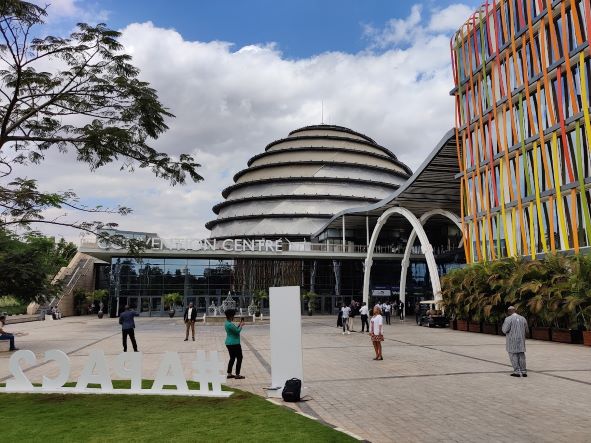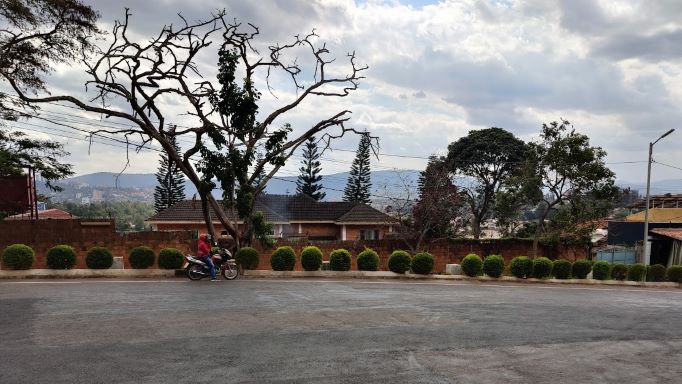Over the last week I was visiting Kigali, the capital of Ruanda. As a first time visitor I was impressed by the beauty and tranquility of the city spread across several hills and valleys. Kigali is a rapidly modernizing city, with lots of interesting coffee roasteries, restaurants and bars. Contrary to Nairobi, life is calmer, and traffic manageable, and if you are ok with hills, it is a great and safe city to walk.
In Kigali, I was participating in the sidelines of the first African Protected Areas Congress (known as #APAC2020) organized by the International Union for Conservation and Nature in partnership with the Government of Rwanda and the African Wildlife Foundation. An estimated 2700 delegates participated in a week long discussion of how conservation efforts can be enhanced and what roles nature parks play in it.

Outside the expected key question, of how to develop a more solid economical base for conservation efforts, it was clearly questions of how to integrate communities affected by conservation efforts better in planning, design and implementation of protected areas. This includes questions such human-wildlife conflict, whether and how communities can act as rangers or contribute to law enforcement in other ways, or whether trophy hunting can serve conservation goals. This is clearly reflected in the closing statement, available here.
The oceans hardly featured in the debate, which is perhaps telling in terms of how much Africa still thinks in terrestrial rather than maritime terms. For debates on maritime protected areas and its challenges, one has to look elsewhere. But granted, the UN Ocean Conference, in which such issues featured prominently was just held a couple of weeks back. Still it would be worthy to think more about the similarities and divergences of protected areas at sea and land, and how experiences and best practices might be exchanged.
In more theoretical language, APAC2020, was an interesting ‘gathering’ with a focus on non-governmental actors. It is rangers, NGO-representatives, philanthropists, ecologists, nature planners, and other experts meeting at such an event. Like for the case of other such gatherings, the primary purpose, contrary to the rhetoric, should not be seen in preparing implementation or action. The relevance of such meetings does not lie in the statement it produces. It serves as a platform for the sharing and exchange of ideas, for networking and strengthening social bonds, and perhaps most importantly for advancing a joint narrative and identity for participants to be part of a common project and goal.

Visiting Kigali also gave me an opportunity to revisit the Genocide against the Tutsi. During my studies in political science and international relations in the 1990s in Frankfurt, the genocide was a core puzzle, both in terms of how to explain the slaughter itself, but also the ignorance of international actors. It also raises important question of how a nation can recover from such a tragedy through transitional justice.
Kigali has several important sites and three museums, out of which the Genocide Memorial is the most impressive and thought provoking. It is not only the graveyard for over 250,000 victims, but also a center of education. Recasting the genocide from today’s perspective, made me realize how important it was as a critical juncture. Not only for advancing the concept and practice of United Nations Peacekeeping, the importance of Protecting Civilians in Conflict, the Peacebuilding and the Gender and Security Agenda, but perhaps most importantly as a moment of global solidarity.
It’s certainly no overstatement, that in 2022 we are again at a global political juncture, as we were in 1994. Without drawing too many parallels, once again principles of the international system are renegotiated – through a war in Europe. And as was the case in 1994 little attention is currently paid to what happens in Africa, that faces a historical drought.